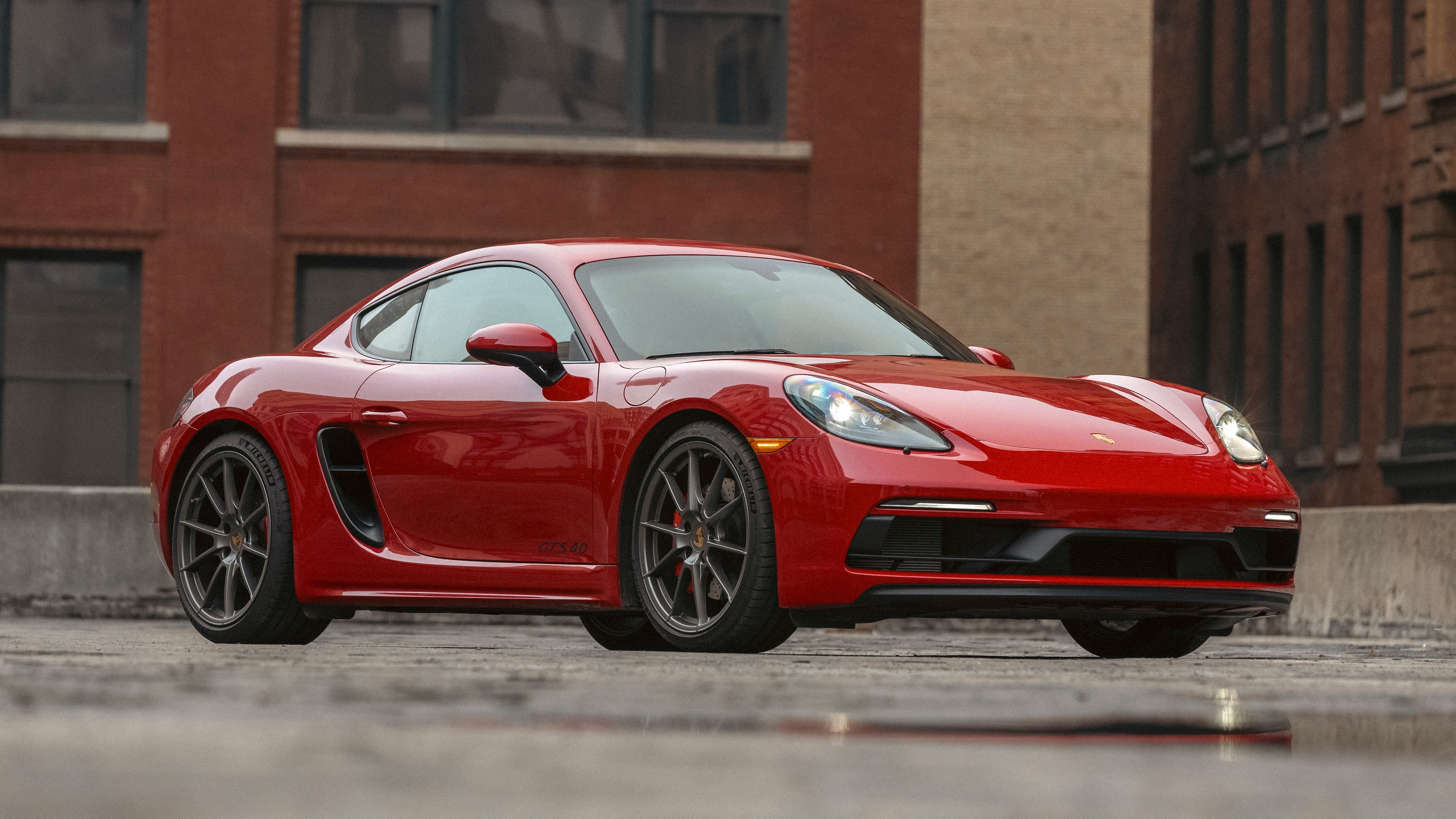Saying goodbye to the Porsche 718 Cayman — for now

The Porsche 718 Cayman and Boxster, in their current forms, are going away. That’s not great news. A couple of months ago, I spent a weekend behind the wheel of a Cayman, so I’m keenly aware of exactly what buyers will be missing — and for a somewhat affordable price, too.
The first Cayman hit the pavement in 2006 as a coupe version of the Boxster. An updated version followed in 2009. In 2017, Porsche dropped the flat-six engine in favor of a turbocharged four-cylinder. A naturally aspirated flat-six returned in 2019, as many Porsche purists and other driving enthusiasts missed the reward of hearing its unique sound on a hard launch.
That reintroduction of the flat-six engine is an essential detail in this story because the turbo-four could have easily outperformed the naturally aspirated flat-six and achieved better fuel economy. As technology continues to evolve, Porsche could refine the flat-four even more with different turbos or exhaust tuning, essentially making the flat-six irrelevant.
However, it’s more than just facts and figures that brought the flat-six back — and that’s exactly why a combustion version of the 718 Cayman may end up returning. Some might say that internal combustion technology can’t be improved upon or that it’s taken us as far as it can go. People who think that might be running on fumes.
Combustion is important
Recently, I wrote a heartfelt reminder of exactly why combustion engines are necessary when it comes to performance cars. I used a BMW as the main example, but there are plenty of excellent sports cars that just wouldn’t be the same if compression, explosions, intake valves and fuel injectors weren’t a part of the formula.
Sports cars have almost always been a luxury purchase. If you have money to spend on a fun car, “quiet” and “efficient” probably aren’t at the top of your decision-making criteria. I think carmakers are beginning to recognize this too.
Several major manufacturers appear to be reevaluating their short-term electrification timelines:
- General Motors is reportedly scaling back its electric vehicle production targets and may renew investment in plug-in hybrids.
- Mercedes-Benz has softened its all-electric sales goal, now expecting a longer transition period.
- Alfa Romeo has indicated its strategy for North America will remain multifuel beyond 2027, rather than shifting to EV-only.
- Aston Martin has delayed the launch of its first EV model, citing market conditions and limited near-term demand.
Like most Porsche coupes, versatility is key to their success and cultlike following. With a variety of versions, the Cayman and Boxster can handle track duties, daily commuting and the exhilarating twisty back roads. The midmounted engine delivers a balance that makes the car feel as if it’s designed for the exact road you’re on at any given moment. Steering is always communicative and nicely weighted.
Why stop the current 718?
The decision to wind down 718 Cayman and Boxster production isn’t about declining popularity or diminished relevance. Instead, it’s a sign of shifting tides in the automotive industry — tightening emissions standards, the rising cost of certifying low-volume engines and the ideological pied piper’s march toward electrification.
Porsche, like many manufacturers, must balance nostalgia and emotional appeal with progress. Ford does this well, and so does Toyota.
The next Cayman
Porsche officials have confirmed that electric successors to the 718 series are in development. Many reports suggest a debut around 2027. However, they also acknowledge the appeal of a special vehicle and seem to understand that Porsche customers value the tactile experience of a combustion engine.
Does that mean traditional gasoline? Maybe, but maybe not. Porsche has been developing a methanol-based fuel designed to produce zero or near-zero harmful emissions.
Meanwhile, the company has teased electric versions of the Cayman and Boxster, both using an all-new lightweight platform specifically made for electric sports cars. Coupe and convertible variants are expected, but final specifications — including motor layout, battery capacity and performance targets — remain under wraps. Early prototype drivers report that it preserves the steering precision, balance and acceleration characteristics that define today’s 718.
A lingering legacy
With the final 718 Cayman rolling off the assembly line this fall, it marks more than the end of a production run — it closes a chapter in Porsche’s story celebrating the visceral joy of driving. But endings can make way for reinvention, and the spirit of the Cayman isn’t going quietly into the night.
For now, we regretfully say goodbye. Then again, it might just be “see you later.”
Brian Moody is a senior editor of Kelley Blue Book and Autotrader and an automotive expert specializing in transportation, car shopping, electric cars, in-car technology and future vehicles.
The Steering Column is a weekly consumer auto column from Cox Automotive. Cox Automotive and The Atlanta Journal-Constitution are owned by parent company, Atlanta-based Cox Enterprises.


